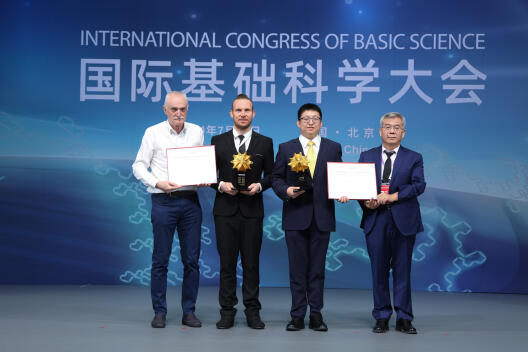Best Paper Award for Arnulf Jentzen
We are delighted to announce that Professor Dr Arnulf Jentzen from Mathematik Münster, together with Jiequn Han and Weinan E, has received the prestigious Frontiers of Science Award for the outstanding paper at the International Congress of Basic Science (ICBS) in Beijing on 14 July 2024.

Jiequn Han (currently at the Flatiron Institute), Weinan E (Princeton University), and Arnulf Jentzen were recognised in the field of Scientific Computing for their paper "Solving high-dimensional partial differential equations using deep learning," published in the Proceedings of the National Academy of Sciences in 2018.
The award citation highlights: "Han, Jentzen, and E employ deep learning techniques for high-dimensional parabolic PDEs, reformulating them via BSDEs." Jiequn Han, the lead author, expressed gratitude to the committee for acknowledging their work, "which has opened exciting directions in solving high-dimensional PDEs with deeper learning over the past six years and beyond".
About the award
The International Congress for Basic Science honours top research, with an emphasis on achievements from the past ten years which are both excellent and of outstanding scholarly value. For the 2024 selection, scientific works in both basic and applied research are chosen in 42 areas of the three basic science fields (mathematics, theoretical physics, and theoretical computer and information sciences) represented at the ICBS.
A scientific achievement must meet the following three requirements to be considered: (1) it must have been published in the last 10 years; (2) it must be of highest scientific value and originality and have made an important impact on its area; (3) it must have been evaluated and accepted by scholars in its area.
The goal of this award is to encourage young scholars to look to the frontiers of basic science, set goals to obtain breakthrough results as early as possible, and contribute wisdom and energy to humankind's study of the mysteries of the natural world.

